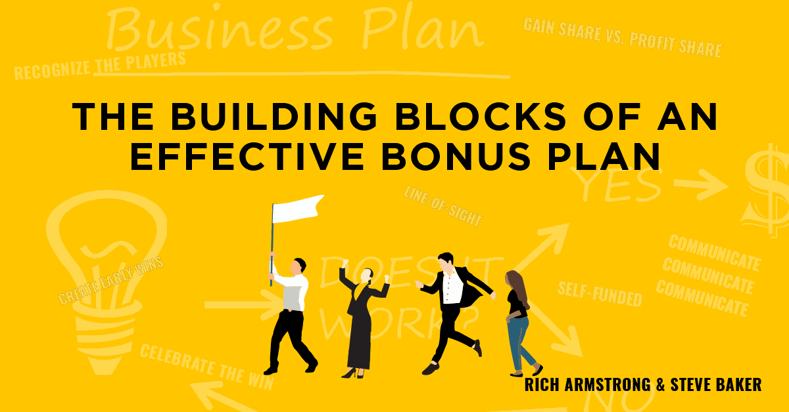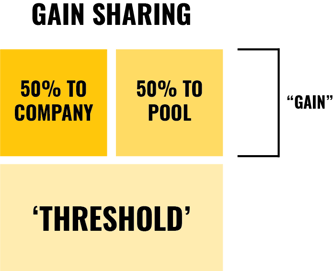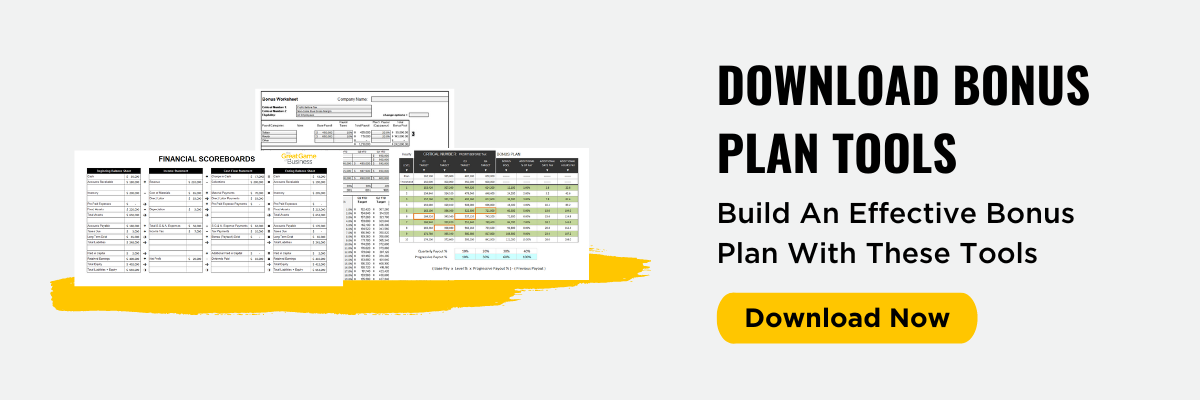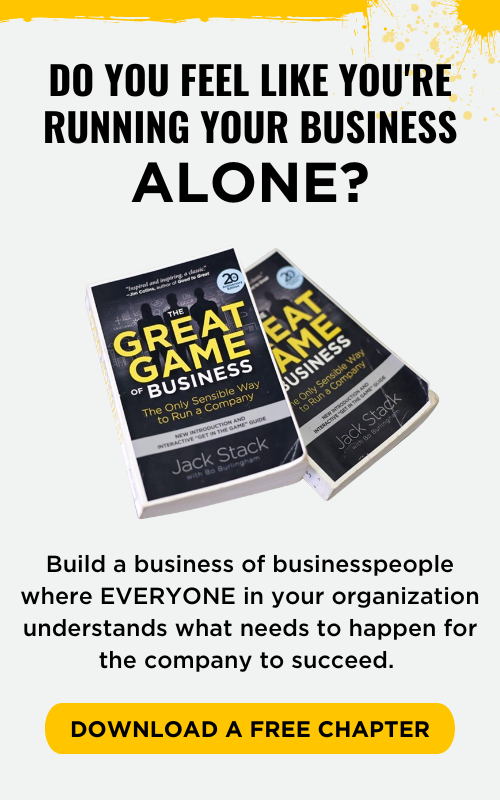
If you’ve watched the movie National Lampoon’s Christmas Vacation, you probably remember the failed “Jelly of the Month” bonus program. Picture Clarke W. Griswold daydreaming about the pool he couldn’t afford, based on a bonus he was simply expecting to get. Did the bonus make him work harder? Did it make him feel good about his job? Feel more connected to the goals of the company? No way! The bonus was seen as an entitlement; it was not intended to motivate behavior in any way.
Most bonus systems for employees are disappointing because they’re a mystery, they’re unpredictable and they’re never, ever enough.
So what can you do?
In this article, we'll share the building blocks of an effective bonus plan. There’s no more powerful way to engage, motivate and involve people in their everyday work, their own goals, and the goals of the organization. Here are the steps you need to take in order for your bonus plan to be most effective:
1. Ensure the Company's Financial Security & Improved Value
Everyone must understand that the company’s financial health is number one. Period. A healthy balance sheet means sustainability, and that ensures job security. Until the company is secure, no one should earn a bonus.
After looking at the investments needed for continued growth and success of the business, you can determine what we call your threshold, or the minimum performance required to maintain the long-term security of the business. Any profit generated over this profit threshold can begin to fund a bonus pool.
2. Provide a Significant Portion of the Gain

Once you know what minimum profit is required to cover the threshold, any additional profits are available to fund other investments, including a bonus plan for your people. We prefer to think of this as a “gain share” program rather than a “profit share” program where companies share a percentage of every dollar of profit made. In other words, the bonus plan is completely self-funded by the “gain” over the threshold.
You might ask, "Why can’t we allocate every dollar over the threshold to a bonus payout? Haven’t we covered all the needs of the business?” You might have covered all of the planned needs of the business, but you should consider extra funds to cover unplanned needs and invest in growth.
3. Rally People Around a Common Goal
In order to ensure that everybody remains focused on the same goals, choose a bonus target that everyone can impact. Be sure you clearly identify and explain how each department and work group contributes to the end goal.
We want people to work together as a team—to pull in the same direction. We want to reinforce cooperation and encourage collective efforts to make the business stronger. We either win together, or we don’t win at all.
4. Use the Bonus to Teach People About the Business
Your bonus plan may be the most effective educational tool you have in your business. Tying financial rewards to performance serves as an opportunity to teach all employees how they affect the specific metric your bonus is based on. This will give them a line-of-sight into your business’ daily operations that they may have never had before. Once employees understand how they are individually driving the bonus with their actions, you better believe they’ll start to work harder and work smarter.
5. Give People a Chance to Win Early, and Win Often
Instead of one big lump-sum payment at the end of the year; consider small, frequent bonus payouts that grow as performance continues to improve. Incremental payouts will keep a continuous focus on the end goal and minimizes the likelihood that your employees will wait to focus on the end-goal until it’s too late.
6. Communicate, Communicate, Communicate
Poor communication is by far the main reason most bonus plans fail. Take the time to educate your team on the bonus plan and explain how their daily actions affect that plan. Follow-up with weekly communication at your company Huddles. Your team needs to have a clear understanding of where they are and what they need to do to move forward.
7. Always Celebrate the Win and Recognize the Players
Don’t underestimate the simple act of recognition as a motivator. Your bonus program should not be focused solely on the pay—get in the practice of celebrating all personal and team wins with a handshake or a “thank you.”
Of course, creating your bonus program will require you to clearly examine your company’s financial goals in order to develop a plan that is rooted in reality and provides an appropriate reward for employees. However, if you create an employee bonus plan using the building blocks above, you’ll be well on your way to developing a plan that is effective, motivating, understood and appreciated by your employees.
Other articles you might like:
.png)



.png?width=789&name=Building_Blocks_image%20(numbered).png)






.png)




-5.png)

